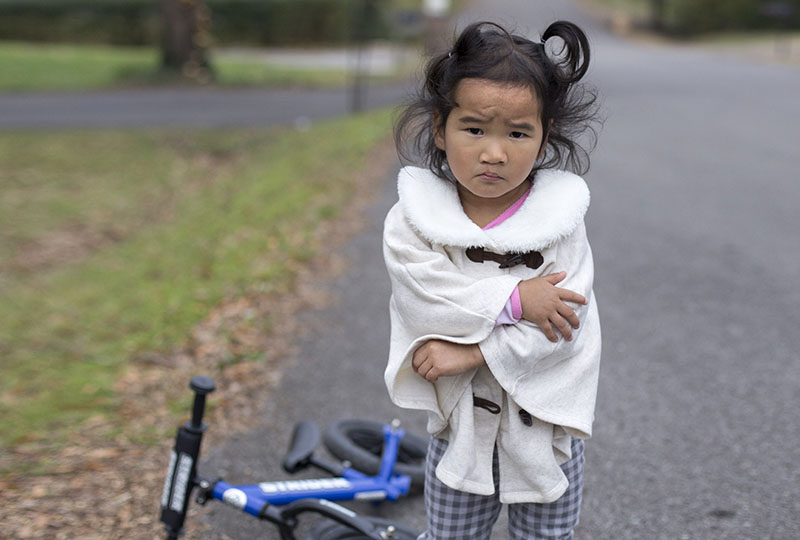Strong-willed children often grow up to become tomorrow’s confident adults.
I think our daughter’s first words in English were “no” and “I do it.” I love that she’s learning independence during her toddler years, but she seems to have a special talent for pushing the limits of our patience. I see other children respond to age-appropriate punishment and reward. No amount of time out, discussion or chocolate seems to penetrate our child’s iron will.
A strong-willed child is a blessing and a challenge. As children and teens, they are more likely to stand up for themselves, but they’ll drive their parents crazy. With proper guidance, they’ll go up to be adults who overcome life’s obstacles.
Seth Scholer, M.D., MPH, an associate professor of Pediatrics at Monroe Carell Jr. Children’s Hospital at Vanderbilt, offers his advice for guiding a strong-willed child.
Timing is important
The timing of discipline is a key skill for parents. As with people of any age, when anger boils up, learning and compromise go down. Children will dig in their heels during a power struggle.
“Don’t attempt a rational discussion with a child who is angry or having a tantrum,” says Scholer. “Offer your child simple and firm commands such as, ‘We’ll talk when you’re done,’ then give them time to cool off. You can come back later to let your child know what you expect of them in the future.”
Guide their willfulness
You want children to have some willpower and independence. The secret is guiding and redirecting the behavior. Let’s say you have a child who loves building with blocks. If he is pushing you away or hitting with his hands, redirect those hands to playing with blocks while telling him why it’s a more appropriate behavior.
Set the rules
Knowing what is expected of them helps willful children understand limits. For example, parents can say, “Our family rule is that we do not get of control with yelling when we get frustrated.”
Role-playing
When a child has calmed down, Scholer recommends role-playing. “If you’re having opposition to a task you can ask your child, ‘Next time I ask you to brush your teeth, are you going to yell and scream?’ Role play helps children process their emotions before they get into the heat of the moment.”
Change the routine
If one parent is having difficulty with a strong-willed child, let another parent step in. Try moving to another room or going outside for a walk.
It takes time
If the child continues with defiant behavior, Scholer suggests that parents change their schedules to spend more time with their child. “A lot of behavior issues are related to attention. Parents need time to understand the needs of their child and children must have time with their parents to learn appropriate behavior.”
I know most parents are probably thinking, “These ideas won’t work with my headstrong toddler.” After a month of trial and error, my wife and I are finding that role playing after a tantrum is helping our daughter talk about her frustrations. She enjoys telling us every detail about her outbursts, enabling us to agree on rules about behavior. It’s not a quick fix, but we’re smoothing off the edges.
This post was written by Rex Perry, a contributing writer for My Southern Health. He and his wife, Donna, adopted their daughter Joy from an orphanage in Xiangyang, China. Like most toddlers, Joy can be unyeildingly stubborn and then make up for it by crawling into your lap for a snuggle.
Learn More
Seth Scholer, M.D., MPH, developed the Play Nicely Healthy Discipline Program at Monroe Carell Jr. Children’s Hospital at Vanderbilt. Play Nicely is an interactive video program giving parents 20 options to respond to a child with challenging behavior. He is also the author of The Healthy Discipline Handbook.

